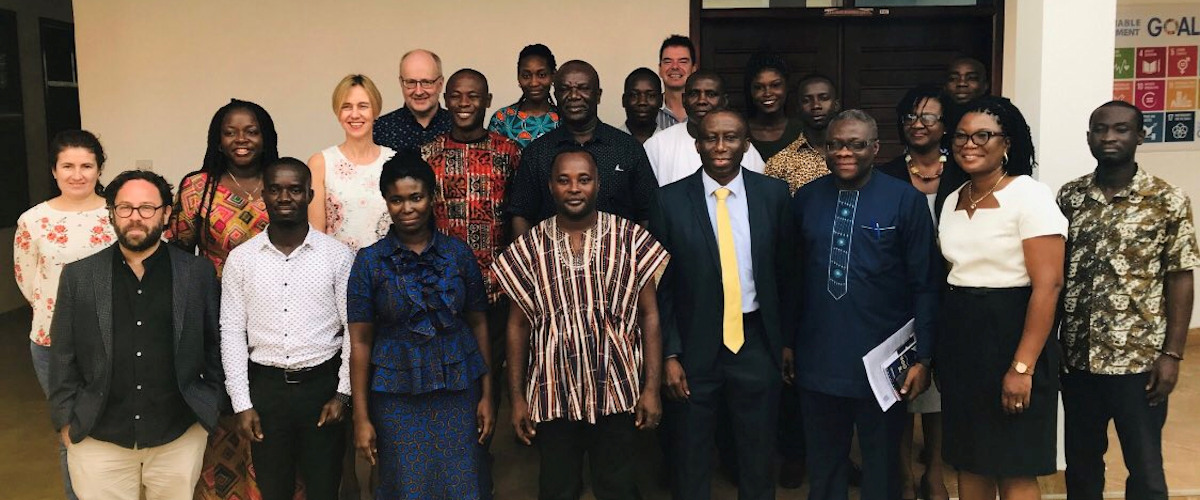
Small-Scale Gold Mining in Ghana (1957-2057)
Primary Investigators: Professor Henrice Altink (Department of History, University of York), Professor Paul Kerswill (Department of Language and Linguistics), Professor Rob Marchant, Dr Joshua Kirshner (Department of Environment and Geography, University of York), Laura Munoz (Department of History, University of York), Professor Nana Aba Appiah Amfo, Professor Chris Gordon, Dr Gladys Nyarko Ansah, Dr Jesse Ayivor, Dr Nene Kuditchar (University of Ghana)
External Collaborators: University of Ghana
Funder: GCRF Pump Priming (University of York)
Since the 1970s, Ghanaian gold mining operations have expanded significantly, including small-scale mining (SSM), and continued growth is expected in near future. The rapid growth in SSM – there are currently 1 million small-scale miners in Ghana producing 30% of the country’s gold output – has significantly impacted on the environment, removing vegetation and soils and interrupting ecosystem service flows, resulting in biodiversity loss and water and soil pollution and concomitant health problems. In addition, it has generated various socio-economic problems, including increased crime, population displacement, and conflicts between miners on the one hand and traditional landowners, large-scale mining companies and government on the other.
There is a slowly growing body of work on SSM in Ghana, which has paid attention to the drivers behind SSM, particularly its unregulated variant; the environmental impact; and the regulatory framework. Little or no attempt has been made to explore how the problem of SSM has emerged and been sustained and why it is progressing along an environmentally destructive and unhealthy path. Furthermore, the wider economic and societal costs have received scant attention and impacts have been studied in isolation. This project, which is carried out by academics and students from the Universities of York and Ghana, fills a gap in the scholarship by offering a historical and interdisciplinary approach to the study of the environmental and socio-economic impacts of SSM in Ghana and the factors that sustain the industry in order to make recommendations for more effective management.
Between January and July 2019, the team will concentrate on three work packages: the past – exploring the historical spread and impact of SSM, the present – assessing contemporary issues, and the future – offering two scenarios of what will happen if governance is adjusted vs a ‘business as usual’ scenario. These divergent futures will provide an evidence-base to limit the negative aspects of SSM. Methods used in this scoping project include, amongst others, interviews, focus groups and desktop and archival research. A first workshop to fine-tune research questions and make arrangements for fieldwork was held at the University of Ghana 14-16 January 2019. The findings of field and desktop research will be discussed at a final workshop at the University of York in June.
Contact us
Interdisciplinary Global Development Centre
igdc@york.ac.uk
01904 323716
Department of Politics and International Relations, University of York, Heslington, York, YO10 5DD, UK
Twitter
Contact us
Interdisciplinary Global Development Centre
igdc@york.ac.uk
01904 323716
Department of Politics and International Relations, University of York, Heslington, York, YO10 5DD, UK
Twitter